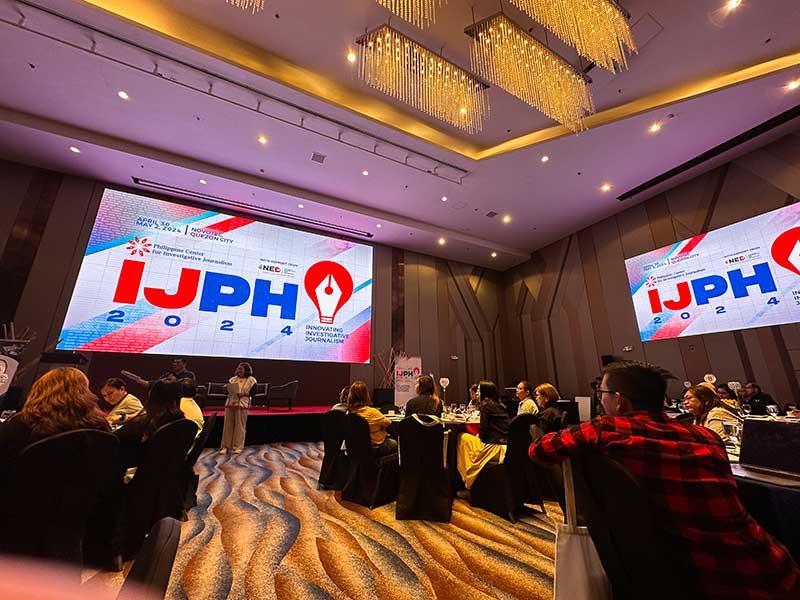
By Rjay Zuriaga Castor
Implementing a licensure examination for media practitioners could have adverse effects on the safety and welfare of journalists, veteran journalists said on Tuesday.
Rowena Paraan, the training director of the Philippine Center for Investigative Journalism (PCIJ), emphasized that a licensure exam is unnecessary in the journalism field, arguing that one can be a “good journalist” even without undergoing such an examination.
“I don’t want to support any action that can be used to regulate journalism. Kasi delikado ‘yun,” she said during the discussion.
Paraan was among the panel discussants in the plenary session during the last day of PCIJ’s Third Investigative Journalism Conference in Quezon City.
She was joined by Philippine Press Institute Executive Director Ariel Sebellino, National Union of Journalists of the Philippines Secretary General Len Olea, and Ana Lomtadze of UNESCO Jakarta.
Paraan further highlighted that government oversight of journalists has hindered media organizations from endorsing laws intended to protect journalists’ welfare.
“Okay naman yung welfare nung journalist but the problem is merong mga certain requirements and definitions of who a journalist is na delikado para sa ating lahat,” she said.
TV5 broadcast journalist Ed Lingao, who moderated the panel discussion, voiced concerns about the practicality of administering such an examination.
“Our problem with that idea, as far as I am concerned, is who will do that?” he said.
Lingao underscored the distinct role of journalists as guardians of government accountability, distinguishing them from other professions.
“They are not watchdogs. We are watchdogs,” he said.
In 2013, two congressmen filed a bill requiring anyone who wants to work in media to pass an exam before they can be accredited as members of the press.
The bill, titled as “Magna Carta for Journalists,” aims to establish the Professional Journalist Examination and the Philippine Council for Journalists, tasked with administering exams covering radio, television, print, and photography.
In the same year, Senator Jinggoy Estrada also introduced a bill with a similar objective.
Journalism is public service
As the number of communication or journalism students opting for careers in the media industry declines, veteran journalists highlight the essence of journalism as a form of public service.
“On the onset, malinaw naman sa atin that this is public service. It’s not really for the glamor although we encounter many students having the answer that hey want to be like Howie Severino or any other anchor or TV personality,’ said Olena.
“Mas maganda na manggaling din from our experience ang sagot. What sustains us? What keeps us here despite what’s happening and I think we can get inspiration from our communities such as colleagues in the media,” she added.
Olena stressed that journalism students should also recognize the impact of journalism in communities aside from the monetary aspect of the profession.
“If you realize the importance of what you do and it’s validated by the people you cover, the impacts of your story […] if you see the impact sa ating mga communities […] I think that’s what keeps us going.
Lingao said journalism students should undergo a “twisted self-screening process.”
“You wanna be a journalist because there are problems that you want to confront and because you do not trust anybody else to do it because you want to do it,” he emphasized.
Sebellino acknowledged that a career in journalism does not necessarily lead to a life of financial abundance and that aspiring journalists should have a “bigger or nobler calling.”
For Rappler regions head Inday Espina-Varona, journalists can explore alternative avenues for sustainability, such as entrepreneurship.
“We also need to be entrepreneurs. We need to find different models in journalism that will get us from the dependence on ads from politicians and big businesses and probably craft and sell allied products to journalism that will allow us income at the same time retaining our independence,” she said.
“Let’s not forget manggagawa tayo. Mahalaga sa atin na makabuhay because if we don’t allow ourselves to live and live properly, we’re going to continue hemorrhaging in our ranks,” she added.




















